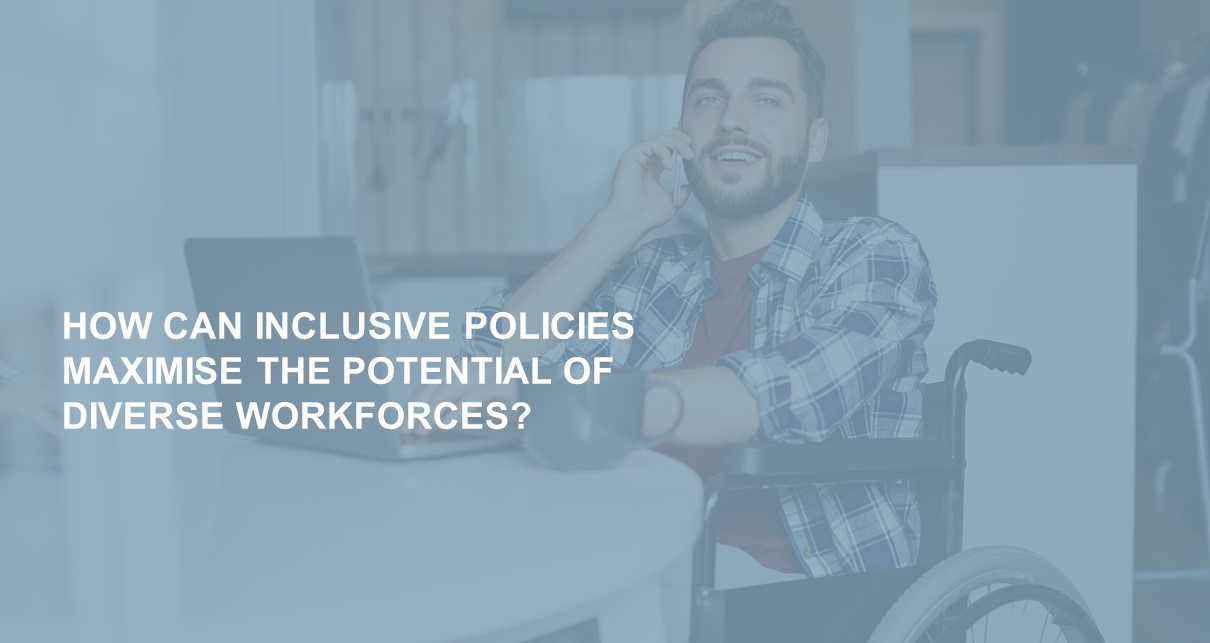

At Stanton House, we are driven by the belief that diversity and inclusion is inextricably linked to business performance and employee engagement and retention. We are passionate about unlocking potential at the individual, team and leadership levels to drive high performance through inclusive practices. We regularly partner with Diversity and Inclusion experts to bring our customers insight, advice and guidance. This week we bring you expert insight from our guest blog author, Liz Johnson.
 Liz Johnson, Founder, The Ability People & Podium
Liz Johnson, Founder, The Ability People & PodiumLiz Johnson is a Paralympic gold medallist and disability campaigner. She is the founder of two organisations which aim to close the disability employment gap. The Ability People is the first disability-led employment consultancy, which works with companies to change their outlook on disability and transform their operations to be authentically inclusive. And recently, Liz has launched Podium, the first jobs marketplace for disabled freelancers. The new platform empowers disabled people to access meaningful remote work which meets their needs, and enables employers to access diverse talent across any sector and from any part of the world.
Implement policy, don't just pay lip service
The benefits of diverse workforces are as multifarious as the people which make them up. Different backgrounds and experiences lead to new insights, which in turn foster stronger decision making, better innovation and ultimately more revenue. So how can employers reap the rewards of a diverse workforce?
Firstly, employers must not treat diversity as a box-ticking exercise. They must also ensure that diverse hiring translates into true inclusion in the workplace.
Events of late have put diversity back on many businesses’ agenda, and rightly so. Businesses have an important role to play in empowering minority groups to access equal opportunities. But there is a risk that their support will be limited to lip service unless they implement inclusive policies, too.
For companies to be truly inclusive, they must not only recognise that value lies in people’s differences, but also the ways in which these differences impact their needs at work. Crucially, they must proactively put in place processes to accommodate these needs.
Team members with disabilities are a good example of this, and incidentally are one of the groups who are routinely overlooked by employers. People with disabilities often rely on remote work; but until working from home became the norm just recently, few employers took action to accommodate the flexible working needs of disabled colleagues.
Prior to the pandemic, staff had to ask and were often denied permission to work from home. One of the few positives to come out of COVID is that we’ve debunked the idea that remote work is a ‘perk’, and paved the way for more inclusive policies on a permanent basis. But the reopening of offices now threatens progress for disabled staff.
For those who continue to work from home, the renewed emphasis on office culture threatens to exclude them. For disabled staff who return, working around structures designed for able-bodied people will increase the physical and mental demands of going to work, making it harder for them to do their jobs effectively.
Whether COVID remains a threat or not, flexible working policies are necessary for many disabled people to work comfortably and safely. And for companies to be inclusive of this group, remote work and flexitime need to be a prerequisite.
Of course, this is all assuming disabled people are able to work at all.
Remove accessibility barriers
Barriers to access and failure to address them mean that disabled people in the UK are twice as likely to be unemployed. This is a tragedy; not least because a wealth of talent and skills is going unnurtured and underutilised.
Workers with disabilities have so much to offer employers. Flexible contracts often suit their needs better, meaning disabled people are ideally placed to support companies who depend on freelancers to plug gaps in knowledge and skills. Workers with disabilities could also play a crucial role in ‘new normal’ business models, as offices downsize and teams restructure in response to the pandemic.
But the benefits of employing workers with disabilities goes beyond contractual convenience. Since they have to overcome obstacles every day - which their able-bodied colleagues simply need not consider - people with disabilities offer a unique perspective, as well as resilience and resourcefulness by the bucketload. That is, only for employers who are prepared to support and empower them.
And this goes beyond facilitating remote work. Accessibility is also key.
Just as coronavirus has demonstrated that working from home is feasible, the redesign of workplaces in line with COVID-secure guidelines has highlighted how it’s possible to make physical adaptations to office spaces quickly. There’s no reason why we cannot make accessibility changes just as fast; whether this means providing access to wheelchair ramps, or introducing equipment with speech-to-text software.
True inclusivity also depends on equal involvement in company life; wherever staff are based. For those outside the office to feel connected to the wider team, managers will have to make a special effort to maintain communication and extend opportunities. Wellbeing support and access to HR resources will also become central.
Provisions such as these are the difference between a workplace which meets the needs of a member of staff, and one which enables that person to thrive. It means setting employees up for success. But, whatever their needs, the onus for this should not be on the individual.
Those with needs which are not considered the norm shouldn't have to fight to access what others have as standard. Employers and managers need to take responsibility. And the buck doesn’t stop there; inclusivity is everyone’s responsibility and should be treated as such.
Ingrain inclusivity into your company culture
Workshops and training can promote a better understanding of diversity and inclusion for all members of staff. Carefully considered sessions should offer minority groups a platform to share their experiences and assert their needs, as well as make it the collective responsibility of the team surrounding them to support them.
Only when inclusivity is ingrained in a company’s culture at every level can employers hope to facilitate the honest conversations and trust required for all staff to feel truly included. So, whilst inclusive policies lay the groundwork to attract and retain diverse workforces, a culture of inclusivity is key in order for everyone to reach their full potential.
For more information about The Ability People or Podium please get in touch with Liz.
Share your insights
Stanton House would also love to hear from leaders on how you are adapting, implementing and assessing your workforce inclusion strategies in this new era of work. Please get in touch to share your insights.
Similar blogs




